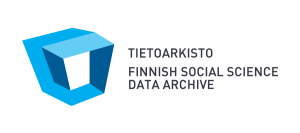”The greatest benefit [of open data] is that we do not know. We don’t know where, how and when the data will be used once they has been opened. That said, certain safeguards need to be in place for datasets containing sensitive information. But it does not change the idea; when these datasets are made available, as openly as possible, there is a lot of potential for future use”, says Tuomas Alaterä, Senior Specialist at the Finnish Social Science Data Archive (Tietoarkisto), who has extensive work experience in the areas of digital preservation, open data and data services to support research.
Tuomas Alaterä (ORCID, @Downblade) works as a Senior Specialist at the Finnish Social Science Data Archive (Tietoarkisto), and he is one of the speakers at the webinar event ”What it takes: Open your research data” that takes place on 25 March 2021 from 1 to 3 pm.
In this interview, Alaterä talks about the importance of research infrastructures that support the responsible handling and opening of research data, as well as the many – also unforeseen – benefits associated with open research data.
Tuomas Alaterä, could you tell shortly about yourself and your work on open data?

”I am a Senior Specialist at the Finnish Social Science Data Archive (FSD) where I have worked for 20+ years. Being a senior specialist does not reveal too much, so let’s dig a bit deeper. I have a master’s degree in political science and that initially led me to work with research data resources for political scientists and methods teachers. Currently the three pillars of my working life are digital preservation and FAIR data, communications, and web services. A great chunk of this work is done in various networks, and networking in Finland and globally has been an integral part of my professional life. In 2015–2019, I chaired IASSIST, one of the oldest international associations for social science data professionals. I dare say that I have been working with people passionate about opening, sharing and managing data long before it became even closely as visible as it is today.”
I dare say that I have been working with people passionate about opening, sharing and managing data long before it became even closely as visible as it is today.
What do you see as the greatest benefit of opening research data?
 ”The greatest benefit is that we do not know. We don’t know where, how and when the data will be used once they has been opened. That said, certain safeguards need to be in place for datasets containing sensitive information. But it does not change the idea; when these datasets are made available, as openly as possible, there is a lot of potential for future use. Opening up research data increases transparency and facilitates collaboration and innovation. It is not only the research community that benefits. As my background is in the social sciences the data I work with is about us, our attitudes, beliefs, culture, and opinions. Decision-makers, the media and citizens can learn a great deal even when they only have an access to detailed metadata.”
”The greatest benefit is that we do not know. We don’t know where, how and when the data will be used once they has been opened. That said, certain safeguards need to be in place for datasets containing sensitive information. But it does not change the idea; when these datasets are made available, as openly as possible, there is a lot of potential for future use. Opening up research data increases transparency and facilitates collaboration and innovation. It is not only the research community that benefits. As my background is in the social sciences the data I work with is about us, our attitudes, beliefs, culture, and opinions. Decision-makers, the media and citizens can learn a great deal even when they only have an access to detailed metadata.”
- Read also: Tanja Lindholm’s blog article The beauty of the unknown – why open your research data?
If you would have one wish that would advance opening data (regardless of costs), what would it be?
”That there would be a adequate and viable data curation community for all fields of research. This certainly means different things for different fields of science, but the bottom line is that we need infrastructures, skilled professionals, and tools and standards to open data in a sustainable way.”
The bottom line is that we need infrastructures, skilled professionals, and tools and standards to open data in a sustainable way.
How do you see opening data in the future and the benefits arising from it?
”I believe that opening data will expand and improve. The younger researcher generations are more open to opening up data – partly because of education and requirements, but also because culture has developed in this direction and the benefits are known. Recent years have also introduced some major challenges. For social sciences and humanities, the data protection regulation and copyright issues are central. Legislative changes, tested interpretations and new expertise are all needed. Therefore, the concept of responsible research is very important and useful. A functioning research infrastructure can be built on it. Everyone needs trust, researchers, research subjects, and repository services. Opening research responsibly and in an interoperable way facilitates enriching data and therefore building new services and new understanding.”
Interview series on open data (#Datarepo2021):
- Open data as the foundation of interdisciplinary research – interview with Francesca Morello (23.3.2021)
- Open data in regular use as part of work – interview with Jouni Tikkanen (22.3.2021)
- The importance of infrastructures and unprecedented potential of open data – interview with Tuomas Alaterä (18.3.2021)
- Researchers need tools, services and ”data doctors” to manage and open their data – interview with Mietta Lennes (16.3.2021)
- Mobilising data for research and decision-making – interview with Kari Lahti (11.3.2020)
- The beauty of the unknown – why open your research data? (17.2.2020)

